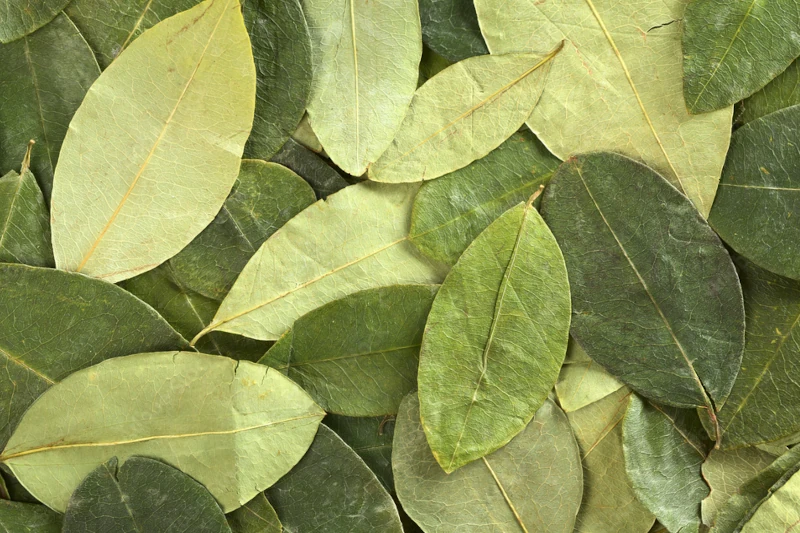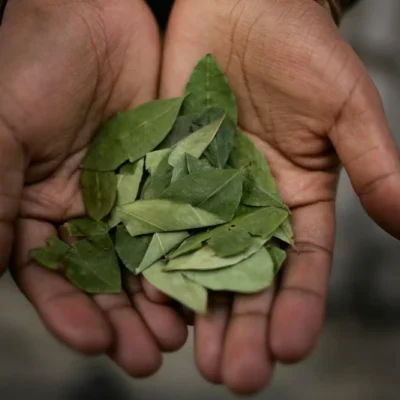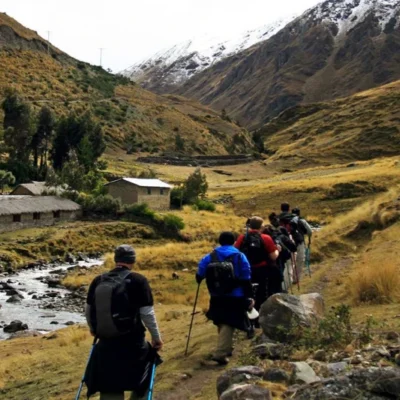Traveling through the Andes is a journey through time and altitude. From the ancient Sacred Valley to the breathtaking vistas of Rainbow Mountain, the region is a treasure trove of history and natural beauty. However, the high altitudes of places like Machu Picchu and Cusco can pose a significant challenge to travelers unaccustomed to the thin air. Altitude sickness, or mountain sickness, is a common ailment in these elevations, but an ancient remedy lies in the humble coca leaf.
Cultural and Historical Significance of Coca Leaves
Coca leaves hold a revered place in the cultural and historical landscape of Andean civilizations. For thousands of years, indigenous communities have relied on coca leaves not only for their medicinal properties but also as a part of their spiritual and social fabric. The leaves are often used in sacred rituals and offerings to Pachamama, the Earth Mother, illustrating their deep cultural and spiritual significance.
Coca Leaves in Ancient Civilizations

The use of coca leaves dates back to ancient civilizations like the Incas, who regarded them as a sacred plant. The leaves were so valuable that they were used as currency and offered to deities. This cultural heritage persists today, with coca leaves symbolizing respect and reverence for nature.
Spiritual Practices and Rituals
Coca leaves are integral to many Andean spiritual ceremonies. They are used in offerings and prayers, believed to connect humans with the divine. The act of presenting coca leaves in rituals is seen as a way to ensure harmony and balance with the environment and the spiritual realm.
Daily Life and Social Importance
In Andean society, coca leaves are more than just a medicinal remedy; they are part of daily life. Sharing coca leaves is a gesture of friendship and hospitality. Whether during a community gathering or a simple social interaction, the exchange of coca leaves is a sign of goodwill and mutual respect.
Understanding Altitude Sickness
Altitude sickness occurs when you cannot get enough oxygen from the air at high altitudes. Symptoms include headaches, nausea, dizziness, and shortness of breath. For travelers eager to explore the heights of Ausangate or the ruins of Machu Picchu, these symptoms can be a hindrance.

How Coca Leaves Help with Altitude Sickness
When the body is exposed to high altitudes, it undergoes physiological changes to compensate for the reduced oxygen levels. Coca leaves aid this adaptation by helping increase the efficiency of oxygen use in the body. The alkaloids in coca leaves stimulate the respiratory system, enhancing oxygen intake and distribution.
Natural Properties of Coca Leaves
Coca leaves contain a small amount of alkaloids, including cocaine, which in its natural form, provides mild stimulating effects without the intensity or addiction associated with processed cocaine. When chewed or brewed into tea, they help the body adapt to high altitudes by enhancing oxygen absorption and increasing energy levels.
Beyond Physical Relief: Social Benefits
The leaves’ benefits extend beyond mere physical relief. They are a part of the social interaction in Andean culture, often shared among friends and family as a gesture of hospitality and goodwill.
Coca Leaves vs. Pharmaceutical Options
While pharmaceutical options like acetazolamide are available for altitude sickness, they offer a natural alternative that aligns with traditional practices. Unlike synthetic medications, coca leaves have minimal side effects and provide additional benefits such as improved digestion and energy.
Using Coca Leaves in Cusco
Travelers visiting Cusco, the route to Machu Picchu, will find coca leaves readily available. Most hotels and local establishments offer coca tea to guests, especially those who have just arrived from lower altitudes. Drinking coca tea is a gentle introduction to the leaves’ effects and a part of the cultural experience in the Andes.

Acclimatization Tips
Before setting off on a trek to Rainbow Mountain or exploring the Sacred Valley, it is advisable to acclimate in Cusco for a couple of days. During this time, consuming coca leaves in tea or by chewing can significantly ease the transition to higher elevations.
Learning from Local Communities
In Cusco and other Andean towns, coca leaves are commonly found in markets and shops. Vendors often offer advice on how to use the leaves effectively, reflecting the deep-rooted knowledge of the local people. Participating in these customs provides travelers with a richer understanding of Andean life.
Traditional Coca Leaf Preparation
- Select Fresh Leaves: Choose vibrant green coca leaves, which are typically available in local markets.
- Fold and Tuck: Fold a few leaves and tuck them into the side of your mouth between the gums and the cheek.
- Add Llipt’a: For those looking to enhance the experience, a small amount of llipt’a (an alkaline substance) can be added to help release the alkaloids more effectively.
- Chew Slowly: Allow the leaves to mix with saliva and slowly chew, releasing the beneficial compounds over time.
Respecting the Tradition
Chewing coca leaves is a deeply respected tradition. It is important to follow local customs and etiquette when participating in this practice. Understanding the significance of the ritual and approaching it with respect enriches the experience.
Additional Health Benefits
While the primary use of coca leaves in the Andes is to combat altitude sickness, they also offer other health benefits. The leaves are known to aid digestion and provide vitamins and minerals, contributing to overall well-being.
Legal Considerations
While coca leaves are legal and culturally significant in Peru and other Andean countries, it is essential to be aware of their legal status in your home country. Coca leaves are often misunderstood outside the Andes due to their association with cocaine. However, when respected as part of the cultural heritage of the Andean people, they offer valuable insight and relief to travelers.
Nutritional Value of Coca Leaves
Coca leaves are packed with essential nutrients, including calcium, vitamins A, B, and E, and fiber. This nutritional profile supports overall health and complements the diet of those living in high-altitude regions.
Mild Stimulant Effects
The mild stimulant effect of coca leaves is akin to that of caffeine, providing increased alertness and energy. This makes them a practical choice for those needing an energy boost without the jitters associated with coffee.
Versatility in Traditional Medicine

In traditional Andean medicine, coca leaves are used to treat a variety of ailments beyond altitude sickness. Their anti-inflammatory and analgesic properties make them a versatile remedy for common health issues.
Connecting with Andean Culture
Traveling through the Andes is more than just a physical journey; it is an exploration of rich cultural traditions and historical legacies. By embracing the use of coca leaves for altitude sickness relief, travelers can connect with the Andean way of life and gain a deeper appreciation for the wisdom passed down through generations.
Enhancing the Travel Experience
Exploring the Andes offers an opportunity to discover not only breathtaking landscapes but also the rich tapestry of Andean culture. Coca leaves serve as a gateway to understanding the deep connection between the people and their environment.
Practical Usage on Treks
Incorporating coca leaves into the travel experience enhances one’s journey through the Andes. By participating in this ancient practice, travelers can alleviate the physical challenges of high altitudes while engaging with local customs.
A Natural Andean Remedy
Whether sipping coca tea in Cusco or chewing leaves on Ausangate trek, this ancient practice offers a natural, effective, and culturally enriching solution to the challenges of high-altitude travel. As you plan your journey to the Andes, consider the coca leaf not just as a remedy, but as a key to unlocking a deeper understanding of this remarkable region.



















